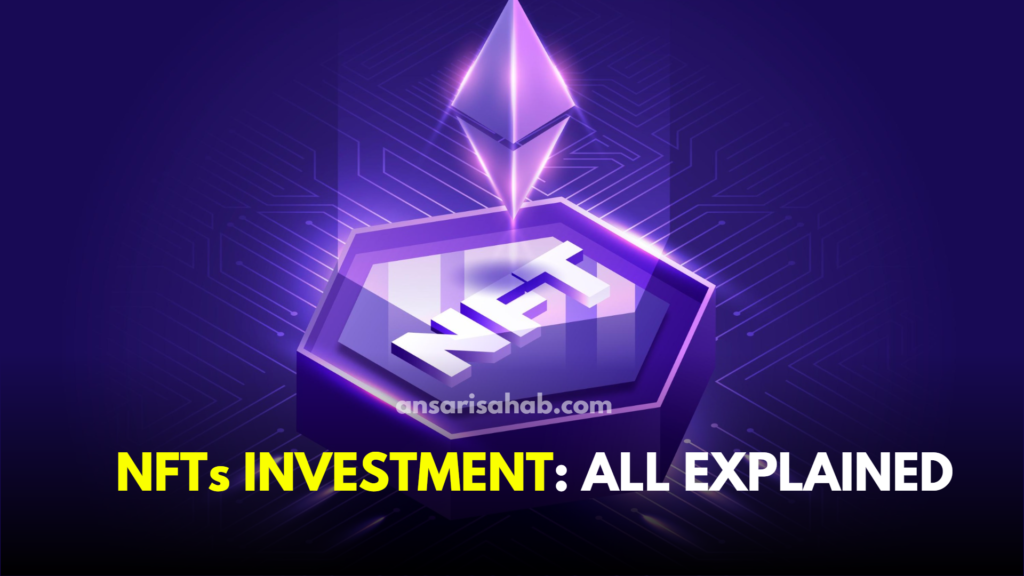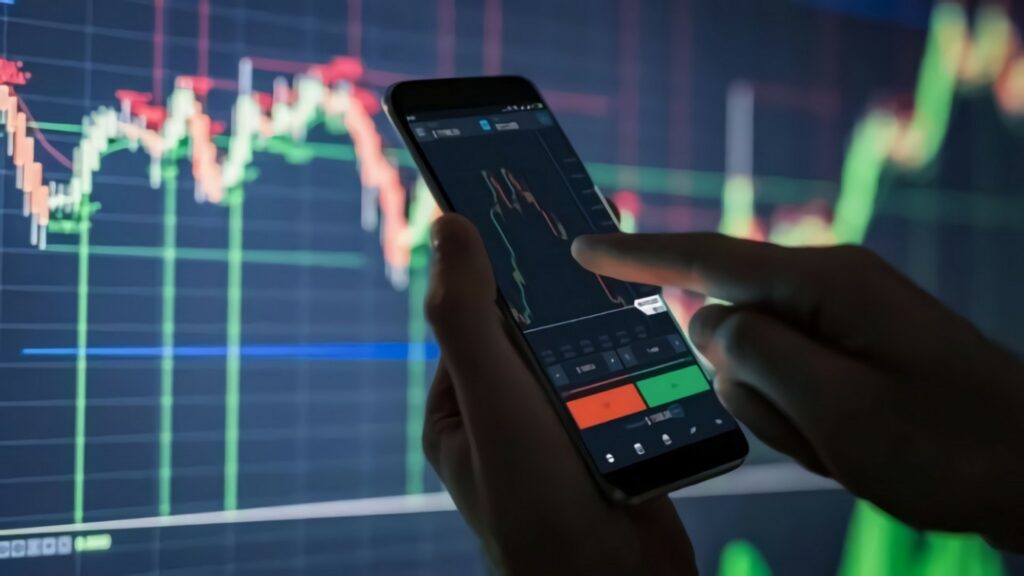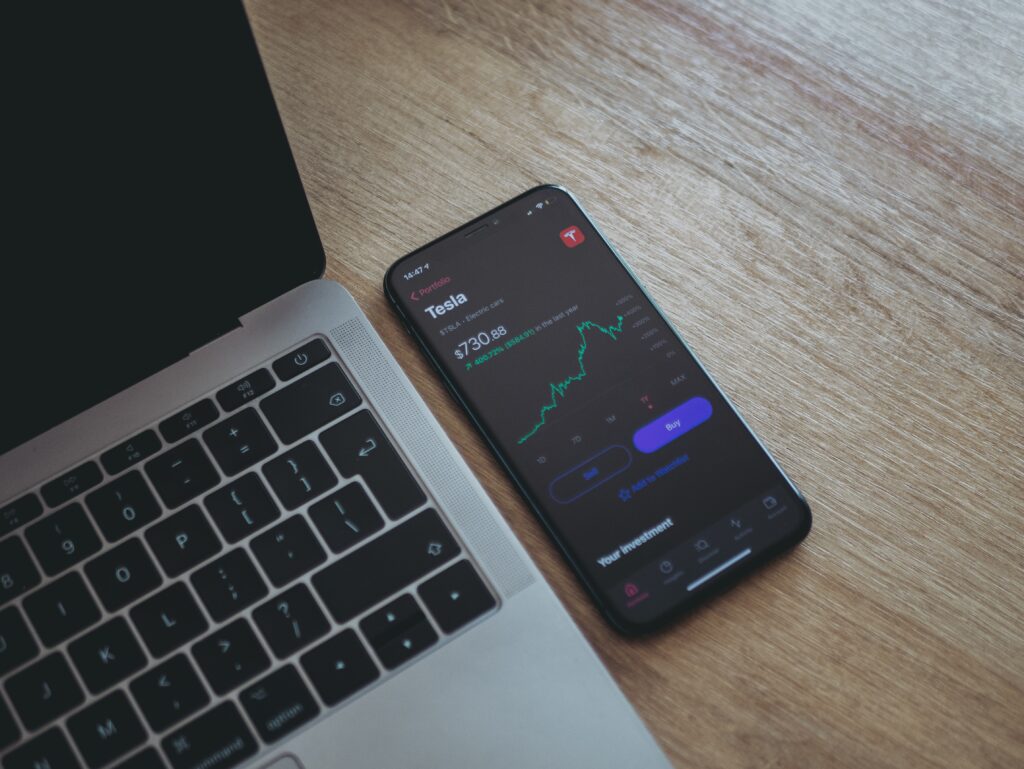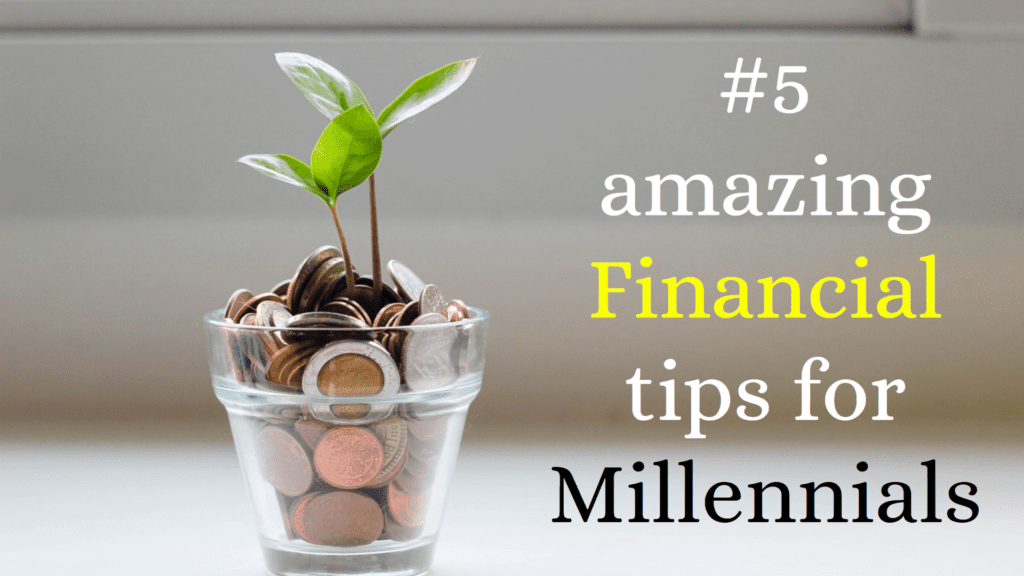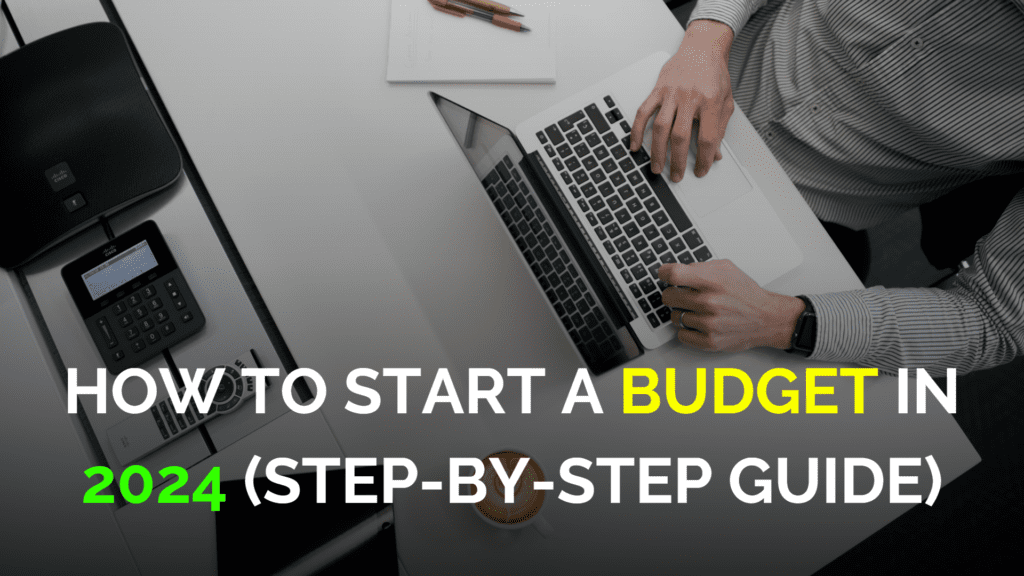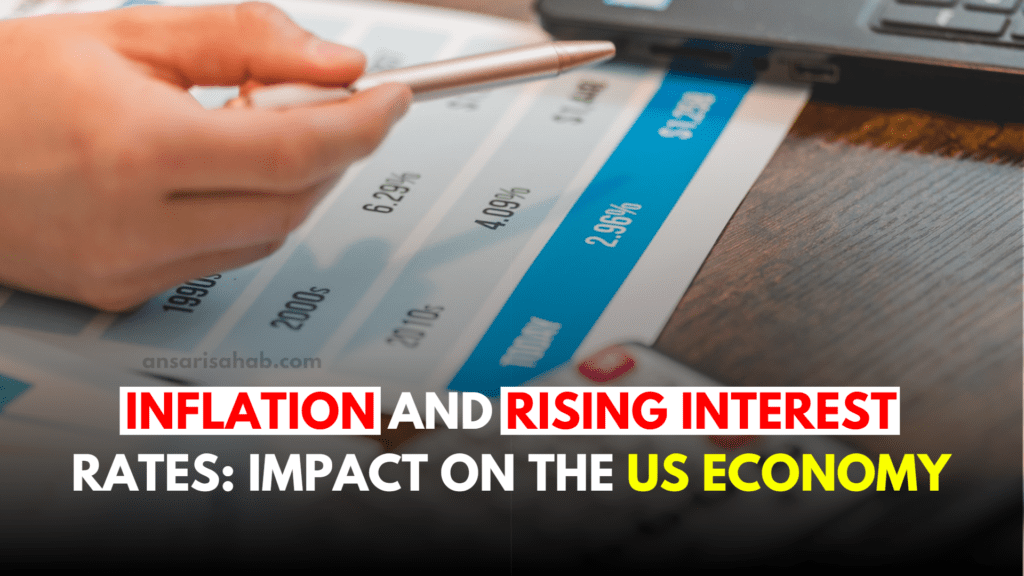Non-fungible tokens (NFTs) have taken the world by storm in recent years. From digital art and collectibles to gaming items and event tickets, NFTs are changing the way we think about ownership and value in the digital world. NFT Investment can be a good decision of your wealthy journey.
If you’re thinking about investing in NFTs, there are a few things you need to know. In this blog post, we’ll cover everything from what NFTs are to how to buy and sell them. We’ll also discuss the risks and rewards of NFT investment, and provide some tips for getting started.
Non-fungible tokens (NFTs) are a new digital asset class that is quickly gaining popularity. NFTs are unique digital tokens that can be used to represent ownership of anything from digital art and music to in-game items and even real-world assets.
NFTs are created on a blockchain, which is a distributed ledger technology that allows for secure and tamper-proof transactions. This makes NFTs very attractive to investors, as they can be confident that their ownership of an NFT is secure and that the NFT cannot be counterfeited.
In recent months, the NFT market has exploded in value, with some NFTs selling for millions of dollars. This has led to a surge of interest in NFT investing, as people are eager to get in on the action.
What are NFTs?
NFTs are a type of digital asset that are unique and non-interchangeable. This means that each NFT is one-of-a-kind and cannot be replaced by another NFT. NFTs are stored on a blockchain, which is a distributed ledger system that is secure and tamper-proof.
NFTs can be anything from digital art and collectibles to gaming items and event tickets. They can also represent real-world assets, such as property or artwork.
How to buy and sell NFTs
To buy and sell NFTs, you’ll need to create a cryptocurrency wallet and purchase some cryptocurrency, such as Ether (ETH). Once you have a cryptocurrency wallet and ETH, you can connect to an NFT marketplace and start browsing NFTs.
NFT marketplaces are where you can buy and sell NFTs. There are many different NFT marketplaces available, each with its own selection of NFTs and features. Some of the most popular NFT marketplaces include OpenSea, Rarible, and SuperRare.
Once you’ve found an NFT that you’re interested in buying, you’ll need to place a bid or pay the asking price. If your bid is accepted or the asking price is met, the NFT will be transferred to your cryptocurrency wallet.
To sell an NFT, you’ll need to list it for sale on an NFT marketplace. You can set a fixed price or allow people to bid on your NFT. Once your NFT is listed for sale, it will be visible to other users of the NFT marketplace.
How to store NFTs
NFTs are stored in cryptocurrency wallets. There are two main types of cryptocurrency wallets: hot wallets and cold wallets.
Hot wallets are connected to the internet and are more convenient to use. However, they are also more vulnerable to hacks.
Cold wallets are not connected to the internet and are more secure. However, they are also more inconvenient to use.
If you are investing in NFTs, it is important to store them in a secure wallet.
Read Also: Crypto Regulations Explained: What You Need to Know in 2023
What are the benefits of investing in NFTs?
There are a number of benefits to investing in NFTs, including:
- Potential for high returns: The NFT market is still in its early stages of development, but it is growing rapidly. This means that there is a lot of potential for high returns for investors who are willing to take some risk.
- Uniqueness: NFTs are unique digital assets, which means that they are not subject to the same inflation risks as traditional fiat currencies.
- Security: NFTs are created on a blockchain, which is a very secure technology. This means that investors can be confident that their ownership of an NFT is secure.
- Liquidity: The NFT market is becoming increasingly liquid, meaning that it is becoming easier to buy and sell NFTs.
What are the risks of investing in NFTs?
There are also a number of risks associated with investing in NFTs, including:
- Volatility: The NFT market is very volatile, meaning that the prices of NFTs can fluctuate wildly. This means that investors could lose money if the price of an NFT falls.
- Scams: There are a number of scams in the NFT space, so it is important to be careful when investing. Investors should do their research before investing in any NFT project.
- Illiquidity: The NFT market is still relatively illiquid, meaning that it can be difficult to sell NFTs. This could make it difficult for investors to exit their investments if they need to.
Risks and rewards of NFT investment
Like any investment, there are risks and rewards associated with investing in NFTs.
One of the biggest risks of NFT investment is volatility. The NFT market is still relatively new and immature, which means that prices can fluctuate wildly. This means that you could lose a significant amount of money if you invest in an NFT and the price drops.
Another risk of NFT investment is fraud. There have been many cases of scammers selling fake or counterfeit NFTs. It’s important to do your research and only invest in NFTs from reputable sellers.
Despite the risks, there are also potential rewards associated with investing in NFTs. One of the biggest potential rewards is the possibility of earning a high return on your investment. If you invest in an NFT that becomes popular, you could sell it for a significant profit.
Another potential reward of NFT investment is the ability to support your favorite creators. When you buy an NFT from a creator, you’re helping them to fund their work and continue creating content.
Read Also: The Best Stock Trading Apps for 2023 for Beginners and Experienced Investors
Tips for getting started with NFT investment
If you’re thinking about investing in NFTs, here are a few tips to get you started:
- Do your research: It is important to do your research before investing in any NFT project. This includes looking at the team behind the project, the community around the project, and the roadmap for the project.
- Invest in projects that you believe in: It is important to invest in NFT projects that you believe in. This means investing in projects that have a strong team, a supportive community, and a clear vision for the future.
- Diversify your portfolio: It is important to diversify your portfolio when investing in NFTs. This means investing in a variety of different projects. This will help to reduce your risk if one project fails.
- Be patient: The NFT market is still in its early stages of development. This means that it is important to be patient when investing in NFTs. It may take some time for your investments to appreciate in value.
How to invest in NFTs
If you are interested in investing in NFTs, there are a few things you need to do to get started:
- Set a budget: It is important to set a budget before you start investing in NFTs. This will help you to control your risk and avoid overspending.
- Choose a marketplace: There are a number of different NFT marketplaces where you can buy and sell NFTs. Some popular marketplaces include OpenSea, Rarible, and Foundation.
- Create an account: Once you have chosen a marketplace, you will need to create an account. This will involve providing some personal information and creating a wallet to store your NFTs.
- Fund your wallet: You will need to fund your wallet with cryptocurrency before you can start buying NFTs. The specific cryptocurrency that you need will depend on the marketplace you are using.
- Browse the marketplace: Once your wallet is funded, you can start browsing the marketplace for NFTs that you are interested in buying.
- Place a bid: When you find an NFT that you are interested in buying, you can place a bid. The highest bidder will typically win the auction.
- Store your NFT: Once you have purchased an NFT, it will be stored in your wallet. You can then choose to keep the NFT or sell it on the marketplace.
The future of NFTs
NFTs are a new and emerging technology, and it is difficult to predict the future of NFTs. However, NFTs have the potential to revolutionize the way we own and interact with digital assets.
NFTs could be used to create new digital economies and to create new ways for artists and creators to monetize their work.
Here are some potential future applications of NFTs:
- NFT-based video games: NFTs could be used to create new types of video games where players can own and trade in-game items.
- NFT-based social media platforms: NFTs could be used to create new types of social media platforms where users can own and control their own data.
- NFT-based marketplaces: NFTs could be used to create new types of marketplaces where users can buy, sell, and trade digital assets.
Conclusion
NFTs are a new and exciting asset class with the potential to revolutionize the way we think about ownership and value in the digital world. However, it’s important to be aware of the risks involved before investing in NFTs.
If you’re thinking about investing in NFTs, do your research, start small, diversify your portfolio, and be patient.
NFT investment is a risky but potentially rewarding investment opportunity. If you’re thinking about investing in NFTs, be sure to do your research and understand the risks involved.
Here are some additional tips for NFT investment:
- Follow NFT influencers and experts on social media to stay up-to-date on the latest news and trends.
- Join NFT communities on Discord and Telegram to connect with other NFT investors and learn from their experiences.
- Use NFT analytics tools to track the performance of different NFT projects.
- Be careful of scams. There are many scammers in the NFT space, so it’s important to be vigilant and only invest in NFTs from reputable sellers.
FAQ (Frequently Asked Questions)
An NFT, or Non-Fungible Token, is a unique digital asset stored on a blockchain that represents ownership of various digital or physical items.
To buy or sell NFTs, you need to create a cryptocurrency wallet, fund it with cryptocurrency (like Ether), and then use an NFT marketplace like OpenSea or Rarible.
NFTs are considered secure investments due to blockchain technology, which ensures tamper-proof ownership, but they are not risk-free due to market volatility.
NFTs can represent a wide range of assets, including digital art, music, collectibles, in-game items, event tickets, and even real-world assets like property.
Benefits include the potential for high returns, uniqueness, security through blockchain, and increasing liquidity in the NFT market.
Risks include market volatility, the presence of scams, and potential illiquidity when trying to sell NFTs.
Minimize risks by doing thorough research, investing in projects you believe in, diversifying your portfolio, and exercising patience.
Notable NFT marketplaces include OpenSea, Rarible, and SuperRare.
NFTs are stored in cryptocurrency wallets. Choose between hot wallets (internet-connected but less secure) and cold wallets (offline but more secure) based on your preference for security.
NFTs have the potential to revolutionize digital ownership, with potential applications in video games, social media platforms, and digital marketplaces, though the future remains uncertain and evolving.

